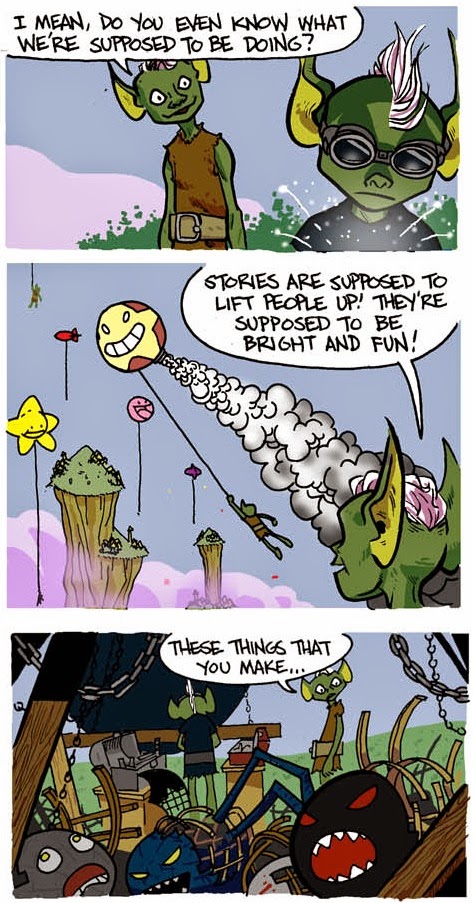On Communication
I'm just coming out of a bit of a funk caused by stressing about a few instances of communication that could have been better, things that left me feeling upset and drained and nihilistic, thinking about communication while wanting not to. No details about the instances follow, just some general, perhaps contradictory thoughts that run along the continuum from an inescapable love of questing for (and appreciation of others who quest for) perfect words to encapsulate meanings at one end to the feeling that it's all pointless and no words ever deliver their intended meanings at the other. For the most part they are on my mind because they are things I've recently come across, not necessarily the results of a thorough reflection on everything I've ever encountered.
From Benjamin Alire's Saenz's book Last Night I Sang to the Monster. It's one I've blogged (and quoted) a number of times before, and it also happens to include these two relevant thoughts:
- Talking just adds to the noise pollution in the world. If we were really serious about going green, then maybe we'd all just be quiet.
- But the thing is that I’m in love with Rafael’s story. I think I understand when Adam says that all our stories are different but in some ways our stories are all the same. I never really got that. But when I start to read Rafael’s journal, it’s as if I can see myself. It’s better than a mirror.
 |
eat shit & die 233 |
I've just started listening to an audio of the book This Explains Everything, edited by John Brockman. It's a compilation of a selection of thoughts from top thinkers submitted at edge.org in response to the Edge Question 2012: What is your favorite deep, elegant, or beautiful explanation? From the preface:
The contributions presented here embrace scientific thinking in the broadest sense: as the most reliable way of gaining knowledge about anything--including such fields of inquiry as philosophy, mathematics, economics, history, language, and human behavior. The common thread is that a simple and nonobvious idea is proposed as the explanation for a diverse and complicated set of phenomena.I'm pretty sure the ideas I encounter as I continue listening will prompt at least a few other posts, but here are relevant thoughts already.
This is from "Unconscious Inferences" by Gerd Gigerenzer. To flesh the quote out with just a bit more context:
Information available from the retina and other sensory organs is not sufficient to reconstruct the world. Size, distance, and other properties need to be inferred from uncertain cues, which in turn have to be learned by experience. Based on this experience, the brain draws unconscious inferences about what a sensation means. In other words, perception is a kind of bet about what's really out there. . . .Also in This Explains Everything is "Group Polarization" by David G. Myers, which includes:
Illusions are a necessary consequence of intelligence.
Cognition requires going beyond the information given, to make bets and therefore to risk errors. Would we better off without visual illusions? We would in fact be worse off—like a person who never says anything to avoid making any mistakes. A system that makes no errors is not intelligent.
Out of this befuddlement--does group interaction increase risk, or caution?--there emerged a deeper principle of simple elegance: group interaction tends to amplify people's initial inclinations. . . .
The Internet accelerates opportunities for like-minded peacemakers and neo-Nazis, geeks and goths, conspiracy schemers and cancer survivors, to find and influence one another. When socially networked, birds of a feather find their shared interests, attitudes, and suspicions magnified.
Ergo, one elegant and socially significant explanation of diverse observations is simply this: opinion segregation + conversation → polarization.
Finally, on a more pragmatic level, an article titled 7 Tricks To Stay Calm When Interacting With People You Don't Like. In brief:
- Appreciate the power of the pause.
- Honor your ability to stay neutral.
- Ask "What if ...?"
- Create some space for yourself.
- Maintain those boundaries.
- Give people the benefit of the doubt (or at least pretend you are).
- Realize that what you don't like in others is frequently what you don't like in yourself.






0 Comments:
Post a Comment
<< Home